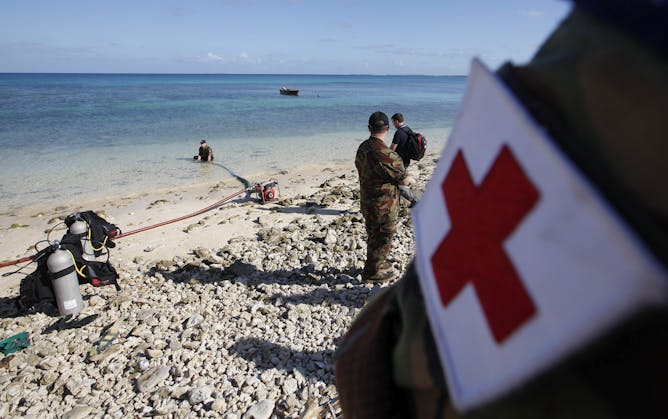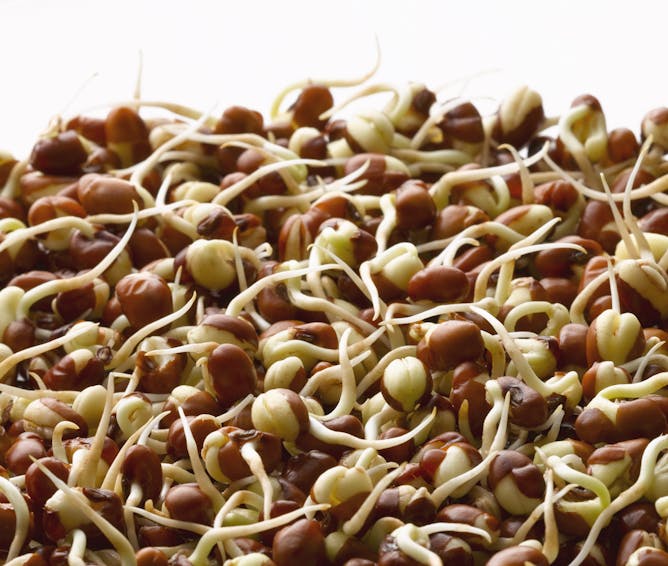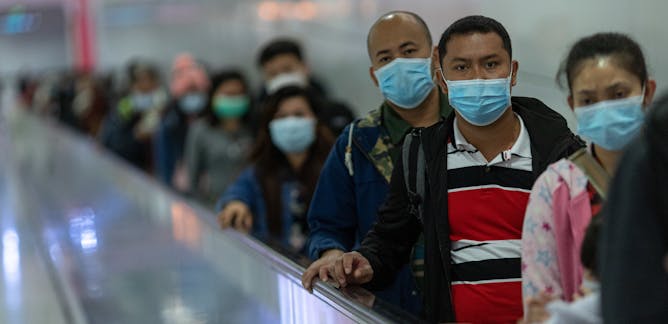|
|
|
Editor's note
|
|
The United Nations has ruled that governments cannot return people to countries where their lives might be threatened by climate change. In the ruling the UN Human Rights Committee notes that the risk of entire countries being affected by adverse weather conditions exposes citizens to human rights violations. Yvonne Su explains why this ruling could change the game for climate refugees and global climate action.
Nigeria is the world’s largest producer of cowpea, a staple crop and an important source of protein for the nation’s 200 million residents. But up to 90% of the crop is lost to a pest called the cowpea pod borer. As Jose Maria Barrero and TJ Higgins reveal, this is what lies behind Nigeria’s decision to register the first genetically modified cowpea and approve its release to small scale farmers. The move marks an important milestone on a continent where countries are still wary of biotechnology and genetic modification.
|
Lee-Anne Goodman
Politics, Business + Economics Editor
|

|
|
Top Stories
|

In this October 2011 photo, members of the Royal New Zealand defense force pump sea water into holding tanks ready to be used by the desalination plant in Funafuti, Tuvalu, South Pacific. The atolls of Tuvalu are at grave risk due to rising sea levels and contaminated ground water.
AP Photo/Alastair Grant
Yvonne Su, University of Guelph
A recent ruling by the UN's Human Rights Committee recognized that climate refugees do exist, and acknowledged a legal basis for protecting them when their lives are threatened by climate change.
|
|
|

Cowpea, also known as Black Eyed Pea, is a staple crop in Nigeria.
Photo by FlowerPhotos/Universal Images Group via Getty Images
Jose Maria Barrero, CSIRO; TJ Higgins, CSIRO
Nigeria recently approved the world's first GM cowpea, which provides full protection against the pod-borer Maruca, a major problem for this important crop.
|
Health + Medicine
|

C Raina MacIntyre, UNSW
There's no evidence you can spread the Wuhan coronavirus before showing symptoms, but one study suggests it's possible for children and young people to be infectious without ever having symptoms.
| |

Matthew Ferrari, Pennsylvania State University
Measles infection can be easily managed with prompt health care and symptom management. But without care, mild symptoms can turn into life threatening secondary infections or long-term effects.
|
|
|
Science + Technology
|

Kseniya Kolobova, Russian Academy of Sciences; Maciej T. Krajcarz, Polish Academy of Sciences; Richard 'Bert' Roberts, University of Wollongong
Neanderthals living in a cave in southern Siberia made distinctive stone tools that can be traced to their ancestral homeland in eastern Europe — an intercontinental journey of more than 3,000 km.
| |

James Kaler, University of Illinois at Urbana-Champaign
Astronomy and astrology do not agree on the dates of the zodiac constellations.
|
|
|
En Français
|

Eda Ayaydin, Université de Versailles Saint-Quentin en Yvelines – Université Paris-Saclay
Tout en soumettant sa culture à la loi du marché, le tourisme permet à ce peuple autochtone de faire perdurer des traditions en voie de disparition.
| |

Xavier Luffin, Université Libre de Bruxelles
Si le nom d’Edward Wilmot Blyden ne nous dit pas grand-chose aujourd’hui dans le monde francophone, l’homme fut incontestablement l’un des grands intellectuels africains du XIXᵉ siècle.
|
|
|
En español
|

Manuel Peinado Lorca, Universidad de Alcalá
Mientras el número de casos de esta epidemia aumenta cada día, investigadores de todo el mundo se afanan en intentar descubrir el origen del virus.
| |

Jon Mikel Zabala Iturriagagoitia, Universidad de Deusto; Igone Porto Gomez, Universidad de Deusto
Contar con recursos propios a nivel local, provincial o regional permite articular políticas sectoriales o tecnológicas concretas, con mayor libertad y mayor capacidad de gestión, lo que ahonda en el desempeño final, tanto en términos económicos como de innovación.
|
|
|
| |
| |
| |
| |
| |
| |
|
|
|
|
|
|
|